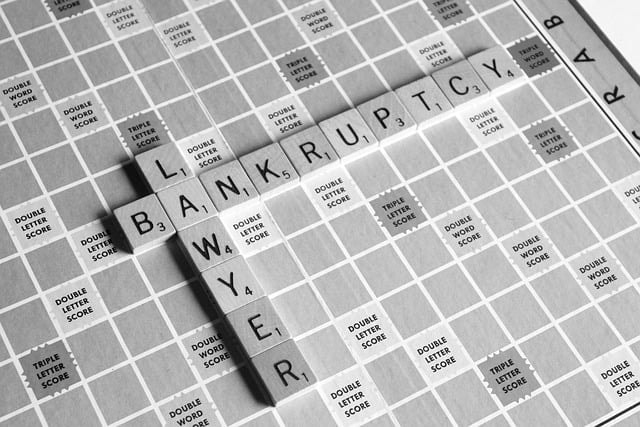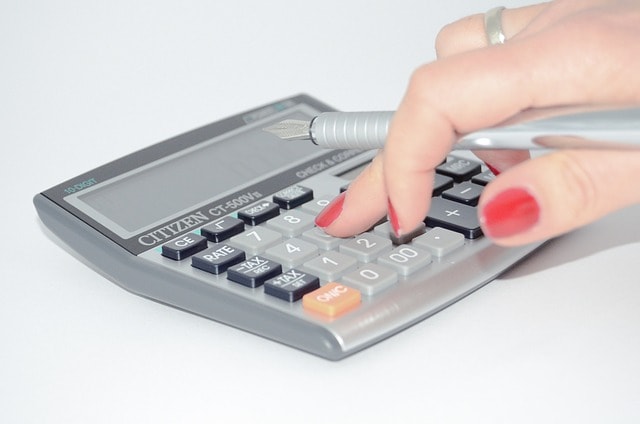Blog

What Happens to 401K Accounts and 401K Loans after Bankruptcy in Georgia?
Bankruptcy | July 16, 2024 | Lee Paulk Morgan
If you’re wondering, what Happened to 401K accounts and 401K loans after bankruptcy in Georgia? To break it down, the concise answer is:
- 401K Accounts: Generally protected under federal law and not part of the bankruptcy estate.
- 401K Loans: Must continue to be repaid; not dischargeable in bankruptcy. Failure to repay may lead to taxable distributions and penalties.
Consult a bankruptcy attorney to secure your retirement savings.
Introduction to Bankruptcy and 401K Accounts in Georgia
When considering filing for bankruptcy, one of the primary concerns for many individuals is the status of their 401K accounts and any outstanding 401K loans. In Georgia, the impact of bankruptcy on your retirement savings can vary significantly based on several factors, including the type of bankruptcy you file and the specifics of your financial situation.
You should rely on an experienced bankruptcy attorney for specifics on what happens to 401K accounts and 401K loans after bankruptcy in Georgia. However, this overview provides the essential information you need to protect your financial future.
Using Georgia Bankruptcy Exemptions to Protect Property
Georgia bankruptcy filers can utilize state-specific exemptions to protect certain assets, including a portion of their retirement savings. These exemptions are designed to help individuals maintain some level of financial security even after filing for bankruptcy.
Differences Between Chapter 7 and Chapter 13 Bankruptcy
Distinguishing between Chapter 7 and Chapter 13 bankruptcy is crucial when it comes to protecting your retirement accounts. Chapter 7, often called “liquidation bankruptcy,” involves the sale of non-exempt assets to pay off creditors. Chapter 13, however, allows for a debt repayment plan, enabling you to keep more of your property, including your 401K.
Protected Assets v. Unprotected Assets
In a bankruptcy case, understanding the distinction between protected and unprotected assets is key. Protection of assets refers to exemptions, so a protected item of property would be one that would be covered by an exemption. Therefore, protected assets are generally safe from creditors, while unprotected assets may be at risk of liquidation to satisfy debts.
Bankruptcy Filing and Retirement
By consulting with a local bankruptcy attorney, you can gain personalized guidance on how bankruptcy will impact your retirement accounts. A knowledgeable lawyer in Athens, GA can help you understand the nuances of Georgia law and federal bankruptcy exemptions.
ERISA-Qualified Plans Under the US Bankruptcy Code
The Employee Retirement Income Security Act (ERISA) provides federal protection for retirement accounts, ensuring that funds within these plans are not considered part of the bankruptcy estate. This protection is crucial for safeguarding your retirement income, as long as the funds are held in ERISA-qualified retirement plans.
Types of Retirement Accounts That are Always Protected in a Bankruptcy
Under both federal and Georgia law, certain retirement accounts enjoy protected status. This includes 401Ks, IRAs, and other plans covered by ERISA, ensuring that your retirement savings are shielded from creditors during bankruptcy proceedings. Plus, a similar form of income that you might receive around the age of retirement is Social Security benefits, which are exempt as well.
Impact of Filing Bankruptcy on 401K Loans
Filing for bankruptcy does not discharge 401K loans. Instead, a 401 k loan must still be repaid according to the terms of the loan agreement. However, bankruptcy can impact your ability to repay these loans, making it important to discuss your options with a bankruptcy trustee.
Tips and Warnings About Using Retirement Funds
The Downside to Using Retirement Funds in Bankruptcy
While it may be tempting to use funds from a retirement account to pay off debts, doing so can have significant downsides. Early withdrawals can result in tax penalties and reduce your long-term financial security, making it important to explore other options first.
Using Retirement Accounts to Pay One Creditor
Using retirement accounts to pay just one creditor can complicate your bankruptcy case. Before taking such actions, it’s essential to consider the broader implications and potential penalties.
Other Facts to Know When You File bankruptcy
The Georgia Homestead Exemption
The Georgia homestead exemption allows you to protect a certain amount of equity in your home during bankruptcy. This exemption is crucial for those seeking to maintain their primary residence through the bankruptcy process.
Saving Your Home in a Georgia Bankruptcy
In addition to the homestead exemption, Chapter 13 bankruptcy can offer a viable path to save your home. By creating a debt repayment plan, you can catch up on mortgage payments and avoid foreclosure.
The Georgia Motor Vehicle Exemption
Georgia law also provides a motor vehicle exemption, allowing you to protect a certain amount of equity in your car. This exemption can be particularly beneficial for maintaining transportation necessary for work and daily life.
Bankruptcy Lawyers Can Simplify These Topics
Bankruptcy laws and exemptions can be complex, but local bankruptcy lawyers in Georgia can simplify these topics. They offer expertise and support, helping you make informed decisions about your financial future.
Final Thoughts and Seeking Professional Help
Understanding what happens to 401K accounts and 401K loans after bankruptcy in Georgia is crucial for protecting your retirement savings. Consulting with a knowledgeable bankruptcy lawyer can provide you with the guidance needed to navigate this challenging process and secure your financial future.
Secure Your Financial Future Today
Are you worried about what will happen to your 401K accounts and 401K loans after bankruptcy in Georgia? Don’t leave your financial well-being to chance. At Morgan & Morgan Attorneys at Law P.C., our experienced bankruptcy lawyers are here to guide you through every step of the process. We understand the intricacies of Georgia’s bankruptcy laws and can help you protect your retirement savings.
Please contact us today to set up a consultation with a lawyer and take the first step toward a fresh start. You can call (706) 350-6156 or visit us online to speak to a team member.
Common Questions About Bankruptcy in Georgia
What is the difference between Chapter 7 and Chapter 13 bankruptcy?
Chapter 7 bankruptcy, often called “liquidation bankruptcy,” involves the sale of non-exempt assets to repay creditors. This process typically takes a few months and results in the discharge of most unsecured debts, such as credit card debt and medical bills. Chapter 13 bankruptcy, on the other hand, is known as “reorganization bankruptcy.” It allows debtors to create a repayment plan lasting three to five years, during which they pay off a portion of their debts. This option is ideal for individuals with a steady income who wish to keep their property, as it enables them to catch up on missed payments for secured debts like mortgages or car loans.
How long does a Chapter 13 bankruptcy case last in Georgia?
A Chapter 13 bankruptcy case in Georgia typically lasts between three to five years. The length of the repayment plan is determined by the debtor’s income and specific financial circumstances. Debtors with a higher disposable income are often required to commit to a five-year plan, while those with lower incomes might qualify for a three-year plan.
What determines the length of a Chapter 13 plan?
The length of a Chapter 13 repayment plan is primarily determined by the debtor’s monthly income relative to the median income for a household of the same size in Georgia. If the debtor’s income exceeds the median, the repayment plan usually extends to five years. The plan may be three years if the income is below the median. Other factors influencing the plan length include the amount of debt, the type of debt, and the debtor’s ability to make payments.
How do you calculate disposable income in Chapter 13?
Disposable income in Chapter 13 bankruptcy is calculated by subtracting allowable living expenses from the debtor’s monthly income. Allowable expenses are determined based on national and local standards, including housing, utilities, food, transportation, and healthcare costs. The remaining amount, known as disposable income, is what the debtor must use to pay unsecured creditors through the Chapter 13 repayment plan. Detailed income and expense documentation must be provided to the bankruptcy court to determine disposable income accurately.
How do I lower my Chapter 13 payment?
Lowering your Chapter 13 payment can be challenging but is possible under certain circumstances. Here are a few strategies:
- Modify the repayment plan: If your financial situation has changed significantly, such as a loss of income or unexpected medical expenses, you can request that the bankruptcy court modify your plan.
- Reduce expenses: Reviewing and adjusting your budget to lower your living expenses can free up more funds for your Chapter 13 payments.
- Negotiate with creditors: In some cases, creditors may agree to accept a lower payment if it means receiving some repayment rather than none.
- Extend the plan duration: Extending the repayment period from three to five years can reduce your monthly payment amount.
What percentage of debt do you have to pay back in Chapter 13?
The percentage of debt you have to pay back in Chapter 13 bankruptcy depends on several factors, including your disposable income, the value of your non-exempt assets, and the total amount of debt. Generally, unsecured creditors must receive at least as much as they would have if you had filed for Chapter 7 bankruptcy, which often equates to the value of your non-exempt property. However, if your disposable income allows, you may be required to pay a higher percentage of your unsecured debts. Many Chapter 13 plans involve repaying a portion of unsecured debts, ranging from 0% to 100%, based on the debtor’s financial situation.
Get Expert Bankruptcy Advice Now
Facing bankruptcy can be daunting, but you don’t have to go through it alone. Morgan & Morgan Attorneys at Law P.C. specializes in helping Georgia residents navigate bankruptcy while safeguarding their retirement funds.
Our knowledgeable attorneys are ready to answer your questions and develop a personalized plan for your financial recovery. Reach out to us now and secure your peace of mind. Call (706) 350-6156 or contact us online to schedule your consultation.
Related Content: The Impact of Bankruptcy on Your Retirement in Athens

Lee Paulk Morgan
With more than 41 years of experience in the areas of Bankruptcy, Disability, and Workers’ Compensation, Lee Paulk Morgan is one of the most respected Bankruptcy and Disability attorneys in Athens, Georgia. His tireless dedication to serving clients has gained him the reputation of a premier attorney in his areas of practice, as well as the trust and respect of other legal experts, who often refer clients to him.
SHARE
RELATED POSTS
What’s the Difference Between Chapter 7 vs Chapter 13 Bankruptcy in Georgia?
Filing for bankruptcy can feel overwhelming, especially when trying to understand your options. You might be asking: What’s the difference between Chapter 7 vs Chapter 13 bankruptcy? The main difference between Chapter 7 and Chapter…
Selling Your Home During or After Bankruptcy In Georgia
Your Home and Bankruptcy in a Nutshell Considering selling your home can be a complex decision, especially if you’re simultaneously facing financial difficulties and contemplating bankruptcy in Georgia. Specifically: If you’re in Chapter 13, court…









